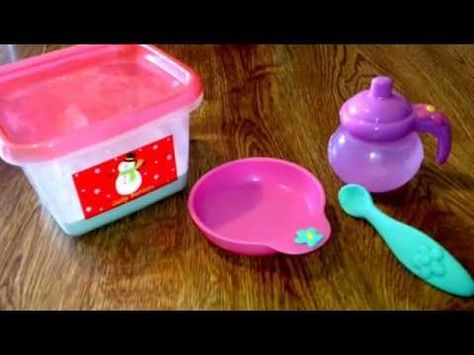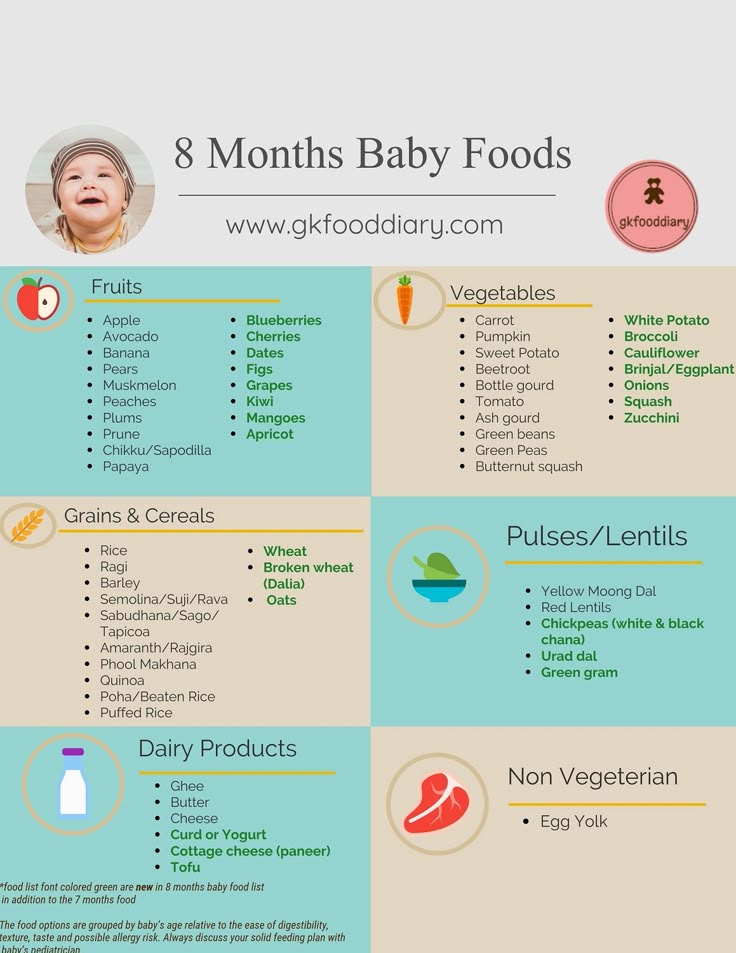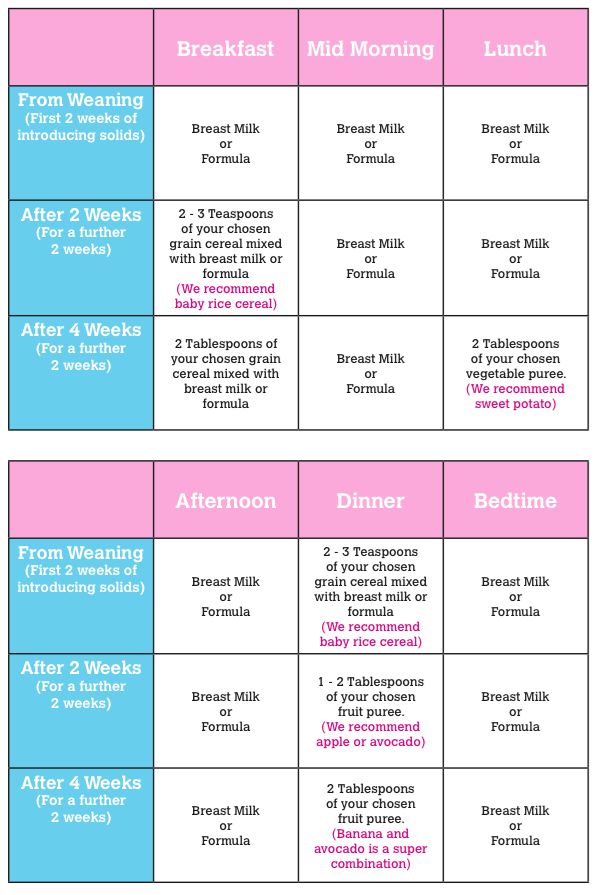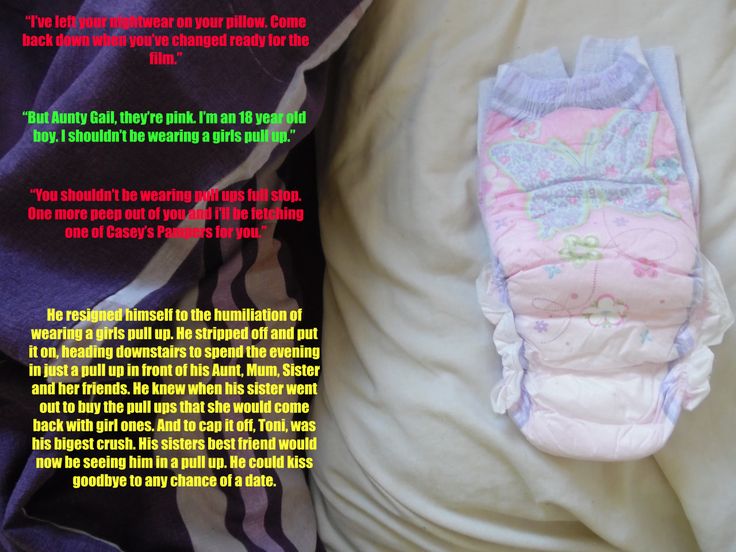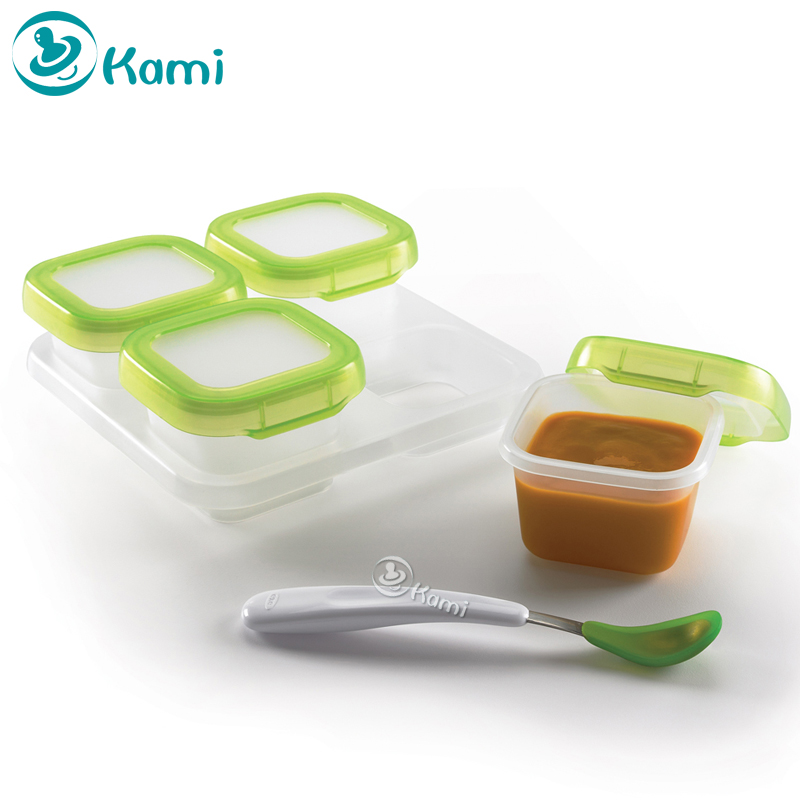Baby straining after feeding
Newborn Grunting: Why Is This Happening?
Is it normal?
It may sound strange to you, but the occasional grunts coming from your newborn are perfectly normal.
As a new parent, you listen to every little sound and movement your baby makes. Most of the time, your newborn’s gurgling noises and squirms seem so sweet and helpless. But when they grunt, you may begin to worry that they’re in pain or need help.
Newborn grunting is usually related to digestion. Your baby is simply getting used to mother’s milk or formula. They may have gas or pressure in their stomach that makes them feel uncomfortable, and they haven’t learned yet how to move things through.
While most grunting is normal, if your baby is grunting with every breath, has a fever, or appears to be in distress, see your doctor.
This grunting may be a sign of a more serious respiratory problem and needs immediate attention.
The cause of newborn grunting
When your baby grunts, it usually means they’re learning how to have a bowel movement. They haven’t yet figured out how to relax the pelvic floor while also using abdominal pressure to move stool and gas through their system. Their abdominal muscles are weak, and they must bear down with their diaphragm against their closed voice box (glottis). This leads to a grunting noise.
They will grunt until they can figure it out, so it may take a few months for your newborn to produce a bowel movement or pass gas without grunting. Some people call this grunting baby syndrome (GBS). Rest assured, it’s fairly common and rarely a sign of something serious.
Babies may also look like they’re straining, and a newborn’s head may turn purple or red in color. This may last for several minutes, according to an article in the Journal of Pediatric Gastroenterology and Nutrition (JPGN).
This shouldn’t be confused with constipation. Your newborn’s system is working correctly to produce excrement. Your baby just hasn’t figured out how to move it through. While the grunting is unpleasant, your newborn simply needs to get used to its new world.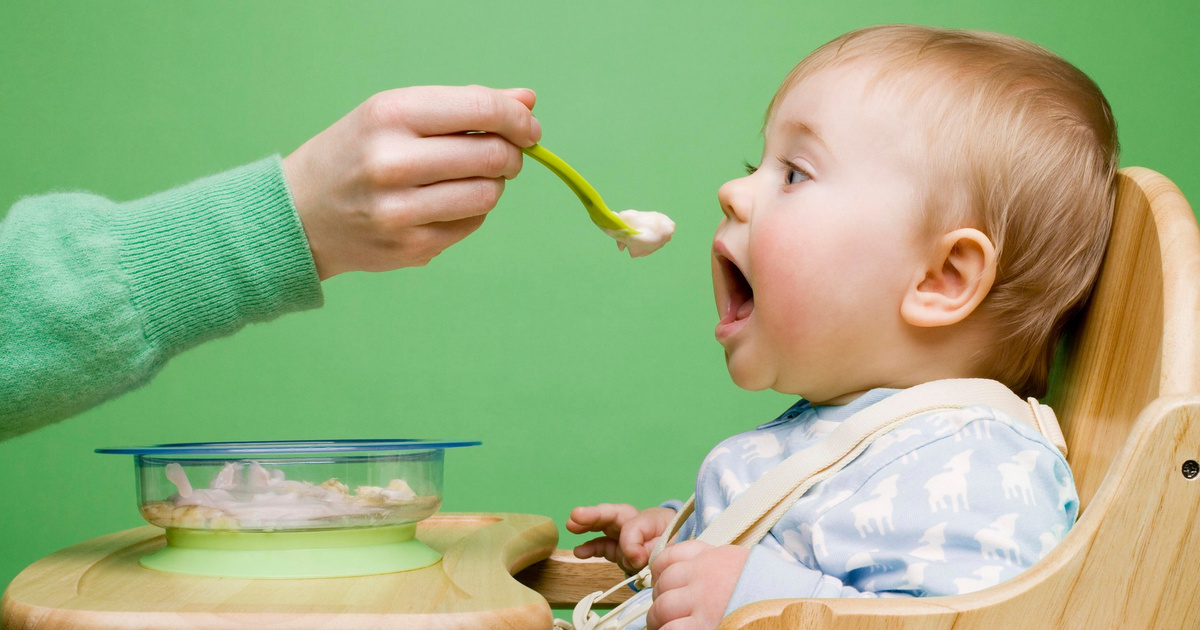
The remedies
You should confirm with your doctor that your baby’s grunting is normal.
If your grunting baby is simply learning how to have a bowel movement, the only true cure is for your newborn to learn how to relax their anus while pushing with their abdomen. This is something your baby will learn with time through trial and error.
Some doctors recommend that parents help their newborn by providing anal stimulation. This involves use of an anal thermometer or a piece of cotton to help stimulate the bowel. While this method usually works to help your baby have a bowel movement, it may have negative side effects in the long run. Your baby may eventually become dependent on this method to have a bowel movement. According to JPGN, repeated use of this method will delay your infant’s ability to learn the correct process for passing stool.
In most cases, the grunting starts in the first months of life and resolves on its own after a few weeks. Every baby is different. It all depends on how long it takes for your newborn to master the coordination of its bowel movements.
It all depends on how long it takes for your newborn to master the coordination of its bowel movements.
When to be concerned
The grunting of a healthy child learning how to deal with digestion is different from the grunting of a sick baby.
Grunting with every breath is never normal. Grunting at the end of every breath could be a sign of respiratory distress.
If your baby is grunting often and also has other signs of illness, such as a fever, or appears to be in distress, see your doctor. This could be a sign of a serious medical condition and requires immediate attention.
Grunting with breathing could be a sign of:
- asthma
- pneumonia
- sepsis
- meningitis
- heart failure (which causes fluid to build up in the lungs and a shortness of breath)
Check for other signs of respiratory distress or illness to determine if your baby’s grunts are normal or a sign of another problem. Other signs of respiratory problems include:
- blue tongue or skin
- weight loss
- fever
- lethargy
- nasal flaring
- pauses in breathing
The takeaway
Watching and hearing your baby struggle may be difficult, but in the end, it’s important to let them figure it out on their own.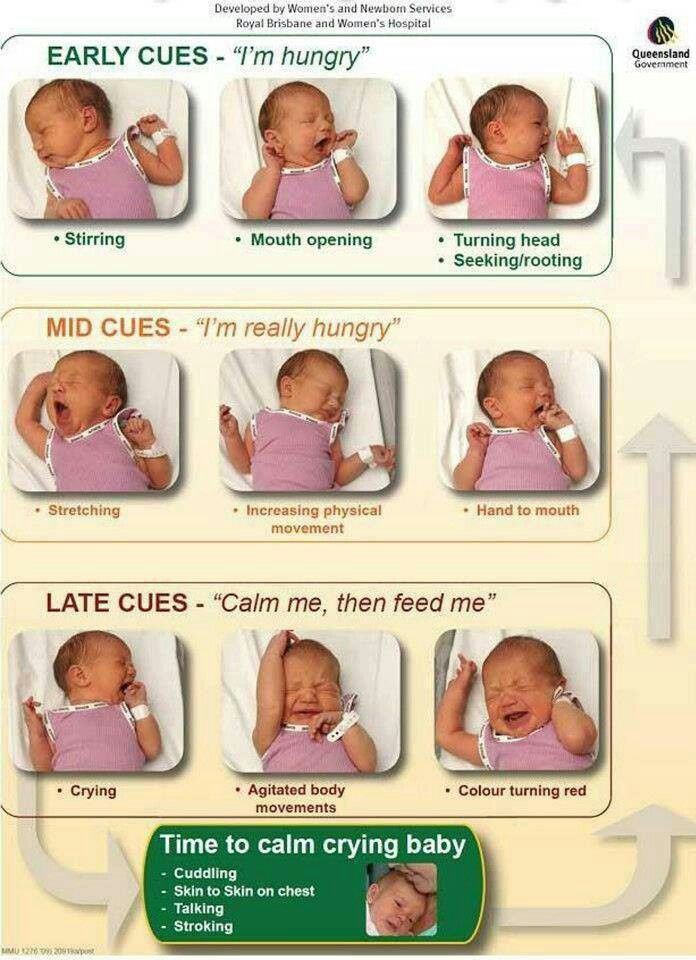
Grunting may seem a little scary, but it usually serves a very useful and healthy purpose for your baby. If your baby is healthy, active, appears happy, and is eating well, grunting is rarely a sign of illness.
See your doctor for a checkup if you have questions or concerns about your grunting baby.
And treat grunting with every breath as a medical emergency.
Understanding Colic | Colic Calm
Toggle Nav
Menu
Account
Shop Now Store Locator
Dealing with a colicky infant can be the most frustrating and anxious period of parenthood. The joy and elation of your newborn’s arrival is suddenly replaced by suffering, sleeplessness and even panic. Many parents feel powerless to control or even alleviate baby’s incessant shrieking as if in agony. Feeding, comforting, back rubs, pacing the floor with baby clutched in your arms for hours on end, nothing seems to work.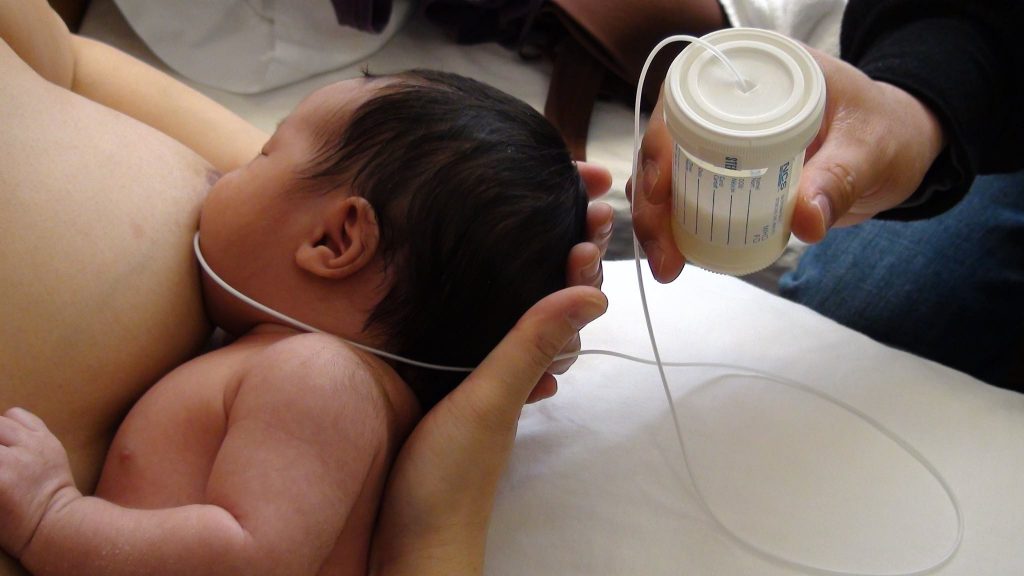 Like the pain of childbirth it is an experience most mother’s would rather forget.
Like the pain of childbirth it is an experience most mother’s would rather forget.
Symptoms of Colic
Infant colic is not a disease but rather a condition characterized by a collection of symptoms. There is no specific test for colic but rather it is the symptoms themselves that indicate a colic diagnosis:
- Baby cries vigorously for long periods, despite efforts to console
- Symptoms manifest around 2 to 4 weeks of age, peak around 2 months and subsides after 3 to 4 months
- Episodes begin and end abruptly around the same of time of day, often after meal times in the late afternoon or evening
- Baby shows signs of gas discomfort and abdominal bloating. Colic symptoms often disappear shortly after a bowel movement or passing gas.
- Baby strains while crying as if in pain. You may notice that the knees are pulled up to the chest, clenched fists, flailing arms and legs or an arched back.
- Baby shows signs of "pushing" or "straining" as if during a bowel movement.
 The face may flush or turn red.
The face may flush or turn red. - Baby demonstrates irritability, fussiness and difficulty falling asleep
In 1954, a renowned pediatrician named Morris Wessel introduced the modern definition for colic as an "otherwise healthy baby who has paroxysms (i.e. outbursts) of crying, irritability and fussiness lasting for more than three hours per day, more than three days per weeks for a period of three months". This definition is sometimes referred to as the "rule of threes" and is used by pediatricians to this day. Colic is very common affecting roughly a quarter of all babies born in the United States but since babies may experience partial symptoms or express colic symptoms to different degrees it is hard to determine an exact percentage.
It is important to distinguish between a "high-needs" babies who may be very fussy but don’t meet the strict Wessel definition of colic. Another difference is that high needs babies are fussy by temperament whereas a baby with colic appears to be genuinely in pain.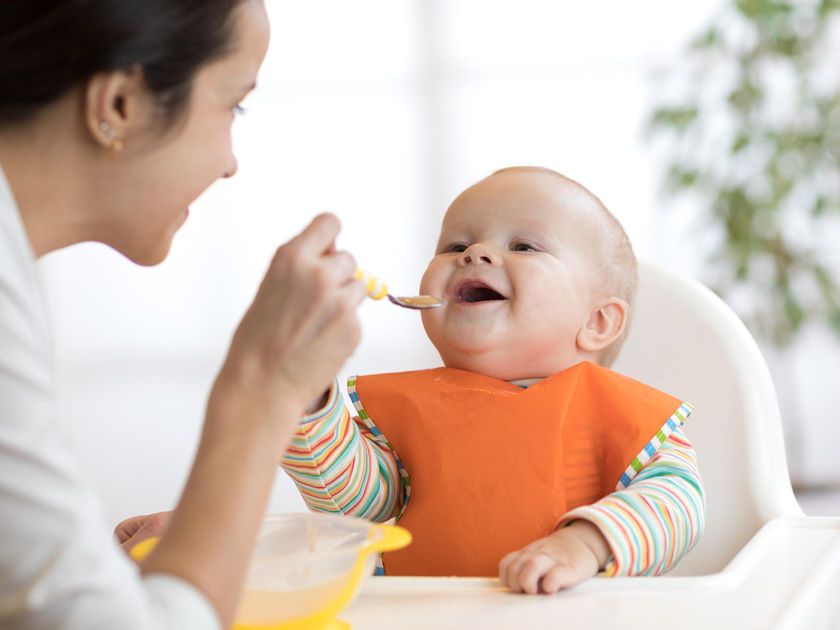 High needs babies respond well to consolation and parental attention whereas colicky babies do not. To compare your child’s symptoms to the observations of other parents take our brief symptom survey.
High needs babies respond well to consolation and parental attention whereas colicky babies do not. To compare your child’s symptoms to the observations of other parents take our brief symptom survey.
In most cases infant colic resolves itself naturally within 3-4 months but for many parents that can seem like an eternity. In rare cases colic has been known to last for as long as 12 months. Colic is unlikely to cause the child any lasting harmful effects but there are exceptions. The National Center on Shaken Baby Syndrome (NCSBS) estimates that nearly 90% of SBS and abusive head trauma cases are triggered by inconsolable crying which are often the result of colic. While there is never an excuse for shaking a child the seemingly endless wailing can certainly take a toll on the frayed nerves of parents and siblings. Many of our customers swore they would not have even considered having more children had it not been for their discovery of Colic Calm while others assert it saved their marriage.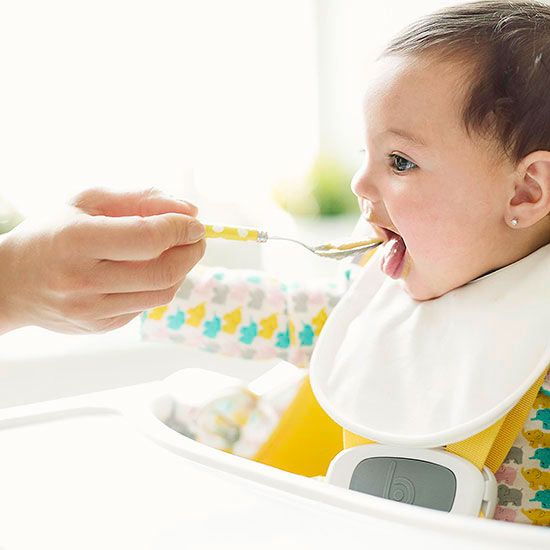
The Theories of Colic
While there is no scientifically proven cause for colic most experts point to gastrointestinal discomfort as the likely trigger. In fact the word colic is derived from the ancient Greek word pronounced "kōlon" meaning intestine. If babies could talk and tell us the precise location and nature of their discomfort the medical community would have a much more definitive understanding this condition. There are at least nine theories proposed to explain the source of colic, but because colic has no precisely defined cause, but rather is a collection of different symptoms, it is quite likely that colic may be due to different factors in different babies. A multi-causal explanation also makes sense because colic symptoms often manifest in different ways in different babies.
Theory of Colic | Evidence | Treatment*(consult your child’s physician before beginning or changing any treatment) |
| 1. Gas, which is a natural by-product of digestion, can become trapped and baby’s immature digestive system is unable to cope often causing baby to strain and cry. When painful gas pressure builds up in the intestines it can also cause an intestinal blockage which in turn can cause baby to reflux. Hence some babies display the symptoms of reflux and gas in combination. | Colicky babies often display signs of intestinal bloating, a hard distended abdomen and signs of "pushing" or "straining" as if during a bowel movement. Colic symptoms often disappear following a bowel movement or passing gas. | A baby’s gas discomfort can be relieved through natural gas relief remedies such as Colic Calm, tummy massages, more frequent burping and a variety of other techniques. |
| 2. Gastroesophageal Reflux (GER) | Dr. Vartabedian points to the similarities between colic symptoms and infant reflux and cites data points such as; 65% of 4-month olds of infants have GER, and nearly 70% of babies between 4 – 6 months of age spit up at least once per day. However, other clinical studies suggest that reflux drugs have little or no beneficial effect on colic and that reflux is only a factor in a small minority of cases. According to Dr. Eric Hassall, a pediatric gastroenterologist at Sutter Pacific Medical Foundation; the results of at least four clinical trials now show that these drugs work no better than a placebo in treating infants with reflux. | There is a growing trend of treating infant colic with prescription reflux drugs such as PPIs and h3 antagonists that suppress the body’s production of stomach acid. Unfortunately synthetic reflux drugs have side effects because they disrupt the body’s natural digestive process. Stomach acid is essential for proper absorption of certain nutrients such as calcium, folic acid and vitamin B and it also helps protect the gut from infection. Colic Calm is a natural and side effect free alternative to reflux drugs and unlike synthetic drugs does not require regular dosing. Colic Calm does provide quick symptom relief upon onset of reflux and can be kept on-hand and applied only upon symptom occurrence. If baby suffers from reflux it is usually advisable to prop up the baby on an incline during sleeping and feeding as this may prevent spit-ups and reflux. Some parents use a specially designed wedge. Visit our reflux page for more information about reflux. |
| 3. Milk Protein Allergy | Increased quantities of gas and other forms of gastrointestinal discomfort from milk protein allergy are similar to the symptoms of colic. | Consult your pediatrician promptly if you suspect a milk protein allergy. |
| 4. Transient Lactase Deficiency (TLD) | Increased quantities of gas and other forms of gastrointestinal discomfort from lactose intolerance are similar to the symptoms of colic. | If baby is formula fed, a lactose free formula may help. Suggestions on our gas relief page may also help alleviate discomfort from gas. *Colic Calm is not intended to treat the underlying cause of TLD. |
| 5. Food Allergy Likewise elements found in formula, such as cow’s milk proteins, may affect formula fed babies. | Increased quantities of gas and other forms of gastrointestinal discomfort from food sensitivities are similar to the symptoms of colic. | If breastfeeding, discontinue suspected foods in your diet to see if symptoms improve. If this happens, gradually reintroduce specific foods until symptoms return. In this way you can identify the culprit, if indeed food insensitivity is the cause. Formula fed babies may switch to a hypoallergenic formula. |
| 6. The Fourth Trimester Theory This theory states that colic is the result of baby’s immature nervous system being disturbed by the nerve signals occurring before a bowel movement known as the gastro-colic reflex. The GC reflex is an autonomic nervous function in the gut that triggers the intestines to begin working as food is processed through the stomach. | While Dr. Karp has received some high profile celebrity endorsements, there is limited direct scientific or clinical data to substantiate his theory. It does appear that the "5 S" techniques work for some children but it does not necessarily follow that the 4th trimester theory is correct. | Dr. Harvey recommends the application of the 5 S’s be performed in combination to calm and sooth babies restlessness; swaddling (i.e. wrapping baby tightly in a swaddling blanket), side stomach position, shushing sounds, swinging, and sucking through the use of a pacifier. The steps are intended to reproduce the reassuring environment that baby experienced in the womb. |
| 7. Immature Nervous System | While it is true that overstimulation can make a baby more fussy and colicky, there is not much evidence to support these theories as the underlying cause of colic. A 1991 study concluded that mothers who were coached to carry their colicky baby’s and to be more "responsive" had no reduction in crying. | Since colic is by definition "inconsolable crying" efforts to console will not work. If baby’s fussing is due to pain and not nervous anxiety then try the tips list at the end of this article. |
| 8. Maternal Anxiety However, since babies are sensitive to their surroundings too much stimulation or emotional stress may aggravate baby’s colic if the condition is already present. | While a colicky baby is guaranteed to cause a mother to stress, there is no evidence whatsoever that colic is caused by a mother’s state of mind. Colic is not caused by bad parenting or baby somehow sensing emotions from either parent. | Colic will cause stress for the entire family and especially mom. Talk to a friend or family member and stay positive. Taking action such as the suggestions listed below can help overcome the feeling of frustration and helplessness. If possible try to share the load by enlisting a reliable caregiver such as a friend or family member. |
| 9. Bacterial Imbalance | It is unclear if it is the absence of benevolent bacteria or the simply presence of bad bacteria that cause baby’s digestive discomfort. However, several studies show supplementation of probiotics (i.e. benevolent bacteria) can reduce the duration of colic in infants. A University of Texas study also linked the Klebsiella bacteria to about half of the colicky babies in their sample. | Supplementing infants diet with probiotic drops, particularly Lactobacillus reuteri, indicated for infants may reduce colic symptoms if performed consistently over a period of several weeks. Use of Colic Calm as needed should alleviate excess digestive discomfort during the period of multiple weeks that probiotics require to take effect. |
Tips and Remedies for Colic
The most frustrating aspect of colic is the apparently inconsolable nature of baby’s discomfort.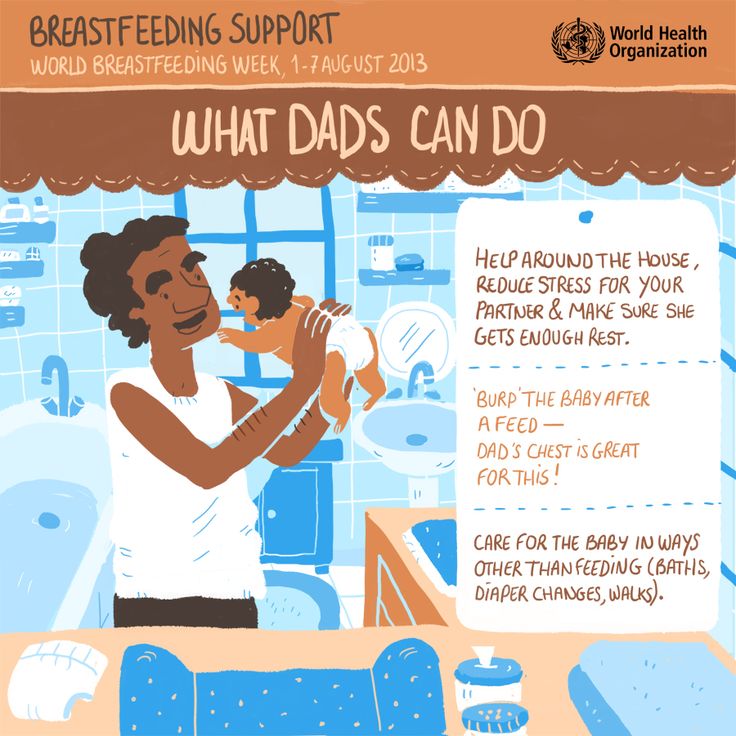 While parents often feel helpless, there are steps that may provide you and your baby with comfort and help boost everyone’s sleep. You can not only alleviate your babies suffering but also limit the duration of colic by following some of these tips below but because every baby is different and causes may vary, not every tip will work. Some trial and error is required.
While parents often feel helpless, there are steps that may provide you and your baby with comfort and help boost everyone’s sleep. You can not only alleviate your babies suffering but also limit the duration of colic by following some of these tips below but because every baby is different and causes may vary, not every tip will work. Some trial and error is required.
- Keep a Colic Diary: By documenting your babies colic episodes you may be able to help yourself and your pediatrician anticipate episodes and even pinpoint the cause. A colic diary should contain a record such as the time of day the episodes started and their duration, sleeping and eating patterns, what soothing strategies you’ve already tried and their effect, the sound of baby’s cry, your baby’s behavior, body posture during episodes and smell and color of stool and urine.
- Gripe Water: For over a hundred years, gripe water has been a trusted remedy for colic used by pediatricians, nannies and millions of parents all over the world.
 The best quality of gripe water should be FDA listed for safety and efficacy, contain all-natural ingredients and be manufactured according to strict FDA regulations for good manufacturing practices (GMP) for homeopathic medicines. Colic Calm® is the only gripe water that meets this high standard, and it works quickly; usually within five minutes or less, providing safe and effective relief with no side effects. Many parents simply describe Colic Calm as the miracle medicine.
The best quality of gripe water should be FDA listed for safety and efficacy, contain all-natural ingredients and be manufactured according to strict FDA regulations for good manufacturing practices (GMP) for homeopathic medicines. Colic Calm® is the only gripe water that meets this high standard, and it works quickly; usually within five minutes or less, providing safe and effective relief with no side effects. Many parents simply describe Colic Calm as the miracle medicine. - The Colic Hold: – The colic hold uses gravity to apply gentle pressure to your baby’s abdomen. This may help baby expel gasses and increase motility in the gut. Carry baby face down with baby’s tummy resting on your forearm, baby’s legs straddling your elbow and baby’s chin resting in your hand. You can give baby a gentle back rub for additional pressure. A similar result can also be achieved by putting baby face down on your leg, whilst you are seated. Alternately try the neck nestle; where baby’s head is placed in the groove between chin and chest and lean back slightly whilst holding baby upright to place gentle pressure on the tummy area.

- Herbal Tea – Lukewarm herbal teas are an old "folk remedy" for colic. There is some evidence that fennel tea in particular may help.
- Sound: Background sounds from the womb can be simulated using a white noise from a hair dryer, vacuum cleaner, tumble dryer, radio static or shushing.
- Music: Recorded lullabies or just singing to your baby may work at least by distracting baby’s attention from discomfort, not to mention soothing the frayed nerves of mom and dad.
- Motion: A gentle rocking, vibrating motion or slow dance can soothe an upset baby. You can hold baby in your arm, a cradle, swing or even take baby for a car ride. You can also sit on an exercise ball to create the bouncing motion many babies love.
- Probiotics – Babies treated with a special type of oral probiotic available for infants, such as Lactobacillus reuteri have been shown in studies to have reduced crying episodes when compared to a placebo group.

- Massage – A gentle stomach massage has been known to help some babies relieve the digestive discomfort associated with colic and to improve the motility of trapped gas.
- Cuddling, Swaddling and Holding: Keeping your baby close in your arms, swaddled in a blanket or in a sling may help calm your fussy baby. This creates a warm and confined environment more like the womb.
- Simethicone: – This drug it referred by some doctors as a remedy for gas. While simethicone is relatively safe there is also no evidence that it actually works any better than a placebo and studies have actually shown it to be completely ineffective.
- A Warm Bath – May relax baby especially if combined with aromatherapy (such as with scented soap or bath oils).
- Pacifiers – Can help baby calm down by triggering the sucking reflex.
- Increase Frequency of Feedings – Shorter and more frequent feeding may help placate your baby if hunger is a factor in the fussiness and the sucking reflex certainly has a calming effect on infants.
 Be careful not to overfeed as this could actually worsen symptoms. If breastfeeding empty one breast completely before switch sides as the hindmilk has less lactose which could trigger increased gassiness.
Be careful not to overfeed as this could actually worsen symptoms. If breastfeeding empty one breast completely before switch sides as the hindmilk has less lactose which could trigger increased gassiness.
Try keeping a colic tips checklist like the one below to determine what worked best for your baby and discuss with your child’s pediatrician or health care provider.
* Disclaimer: The information on this website is not a substitute for professional medical care for the prevention, diagnosis, or treatment of your child’s condition. Please consult with your child’s doctor or pharmacist before trying any medication (prescription or OTC) or following any treatment plan mentioned. This information is provided only to help you be as informed as possible about your child’s condition. You should consult your child’s physician if you are concerned about symptoms as your doctor may be able to identify or exclude certain causes of your child’s discomfort.
why this happens and what parents should do
For people who do not have parental experience or education in pediatrics, babies are like space aliens. They look like adults, but they are different. And they make strange sounds. Some may be surprised even when the baby groans.
They look like adults, but they are different. And they make strange sounds. Some may be surprised even when the baby groans.
This is actually one of his ways of communicating. Up to two months, the child adapts to a new world for himself. And what he is not yet able to express in words, he demonstrates by behavior: groans, twitches his arms and legs, pushes, frowns. Grunting can be a sign of character building or active development in a child.
An infant can make such sounds out of pleasure (for example, during feeding), or when something is given to him with effort (for example, raise his head while lying on his stomach, go big). If the baby grunts a lot and often, and his facial expressions indicate that these sounds are not caused by the most pleasant emotions, you should consult a pediatrician (1).
Foreign doctors have a term grunting baby syndrome - "grunting baby syndrome". We call it infantile dyschezia, and it is associated with difficulty in emptying the intestines (2). This is just one of the reasons why a child may grunt. And he may have different reasons to communicate something to the world of adults in this way.
This is just one of the reasons why a child may grunt. And he may have different reasons to communicate something to the world of adults in this way.
Why does a newborn baby grunt
— If the baby only grunts, breathes normally, eats and sleeps, gains weight and height, then this is normal. So he can simply communicate with his parents or, for example, tell them that he wants to go to the toilet or that a small fold on his clothes interferes with him, - explains pediatrician, neonatologist, anesthetist-resuscitator, blogger, author and expert of the first aid course children Aelita Biryukova . - If parents have good contact with the child, they will always understand exactly how he groans when he wants to eat, and how he groans when, for example, he peed.
If crying is added to grunting, this may indicate that the child is hungry or needs attention, that he has a full diaper, or, for example, that he is hot. That is, in this case, it is not necessary that there is cause for alarm.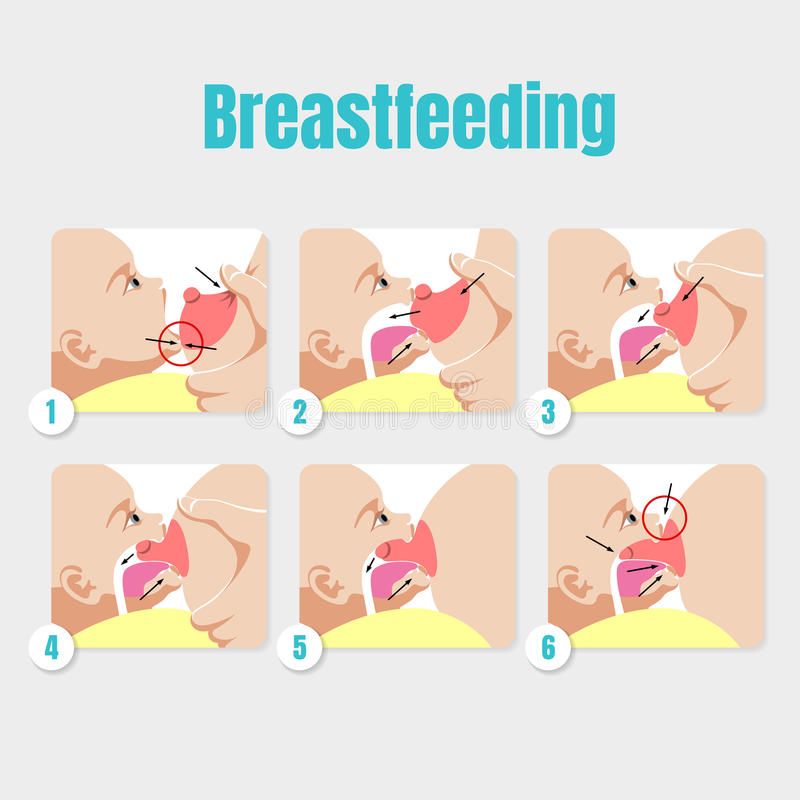
But often the baby groans, and even cries when he suffers from colic.
So, the most common causes of grunting in newborns are:
- he communicates like this;
- he has colic;
- child has difficulty breathing due to stuffy nose;
- he has a dream;
- the baby is uncomfortable in his clothes - they are too warm or tight;
- have problems with bowel movements;
- the child is hungry or thirsty.
What to do if a newborn baby grunts
If the baby grunts and strains, but there are no other reasons for concern (constipation or frequent loose stools, constant crying, high fever), it will most likely go away with time. But if the condition of the groaning child is alarming, you should see a doctor.
Colic is a common problem in infants during the first months of life (3). And what to do if this is the reason for the groaning?
- Starting from 2-3 weeks and ending at the age of 3 months, children are actively maturing the gastrointestinal tract.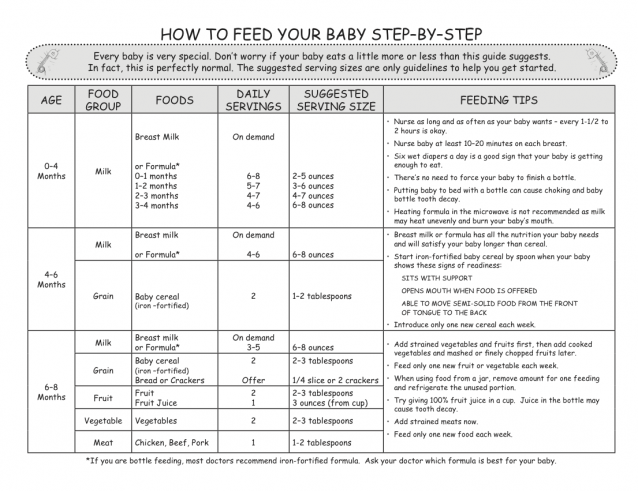 The immaturity of the gastrointestinal tract provokes a slight dysfunction, which may be accompanied by pain in the child's abdomen, explains Aelita Biryukova. Colic is always due to two causes. The first is distension of the intestines with gases. In this case, we see the inflated belly of the baby, he groans and strains under the influence of these gases. The second is spasms: when there is a peristaltic wave through the intestines. This happens often when there are long periods between feedings or when the baby is formula-fed. Therefore, on-demand breastfeeding is the best prevention option (4).
The immaturity of the gastrointestinal tract provokes a slight dysfunction, which may be accompanied by pain in the child's abdomen, explains Aelita Biryukova. Colic is always due to two causes. The first is distension of the intestines with gases. In this case, we see the inflated belly of the baby, he groans and strains under the influence of these gases. The second is spasms: when there is a peristaltic wave through the intestines. This happens often when there are long periods between feedings or when the baby is formula-fed. Therefore, on-demand breastfeeding is the best prevention option (4).
It is not difficult to help a child in both cases, especially since you will certainly find at least one suitable drug in any pharmacy. But remember that the use of any medication should be discussed with the pediatrician beforehand.
– If we are dealing with a spasm, dill water or some herbal preparations will come to the rescue. And excess gas formation is removed with simethicone preparations, says pediatrician Aelita Biryukova.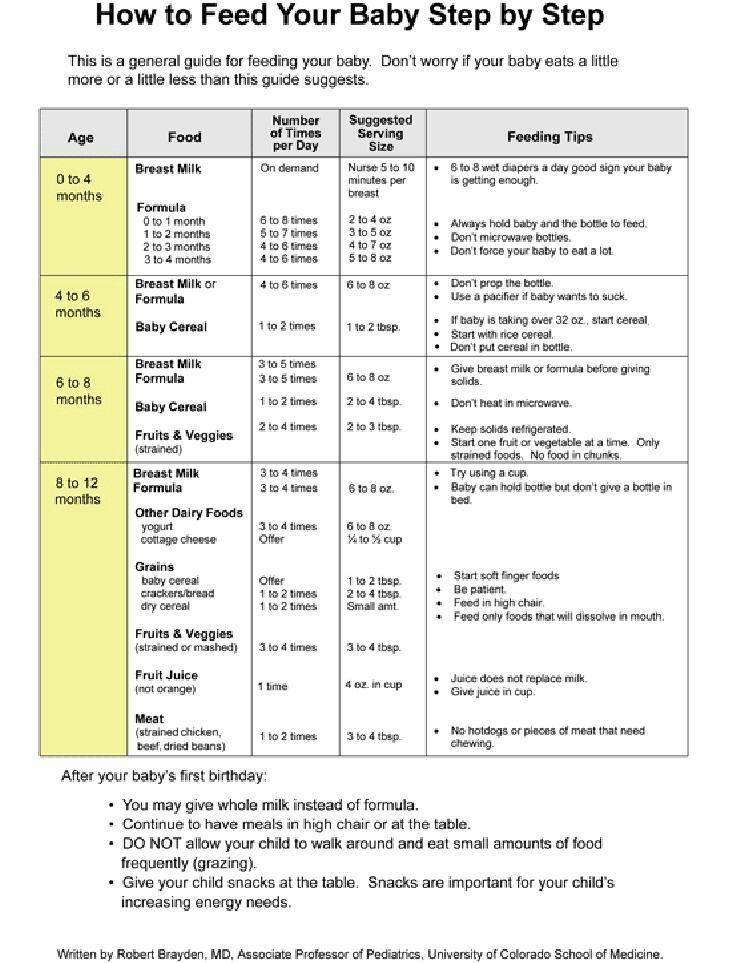 - The mechanism of action is important: the first are given before feeding, and the second during or after.
- The mechanism of action is important: the first are given before feeding, and the second during or after.
Popular Questions and Answers
Although babies grunting is nothing new to doctors, for parents most expecting to hear grunts, these sounds may seem strange. Therefore, a lot of clarifying questions arise. Aelita Biryukova answers them.
Do “grandmother's” remedies help with colic: a warm heating pad on the stomach, stroking, herbal supplements?
Herbal supplements - yes. The main thing is to understand the cause of the pain and choose the right remedy at the right time. And a heating pad, a warm diaper, mother's breasts are, of course, one of the most ancient means of combating colic in a baby.
When is groaning a sign of danger to life and health?
If groaning or other sounds are accompanied by a change in the color of the skin: when the child turns pale or blue. And this is not about the nasolabial triangle - such a phenomenon can be in children with an immature nervous system.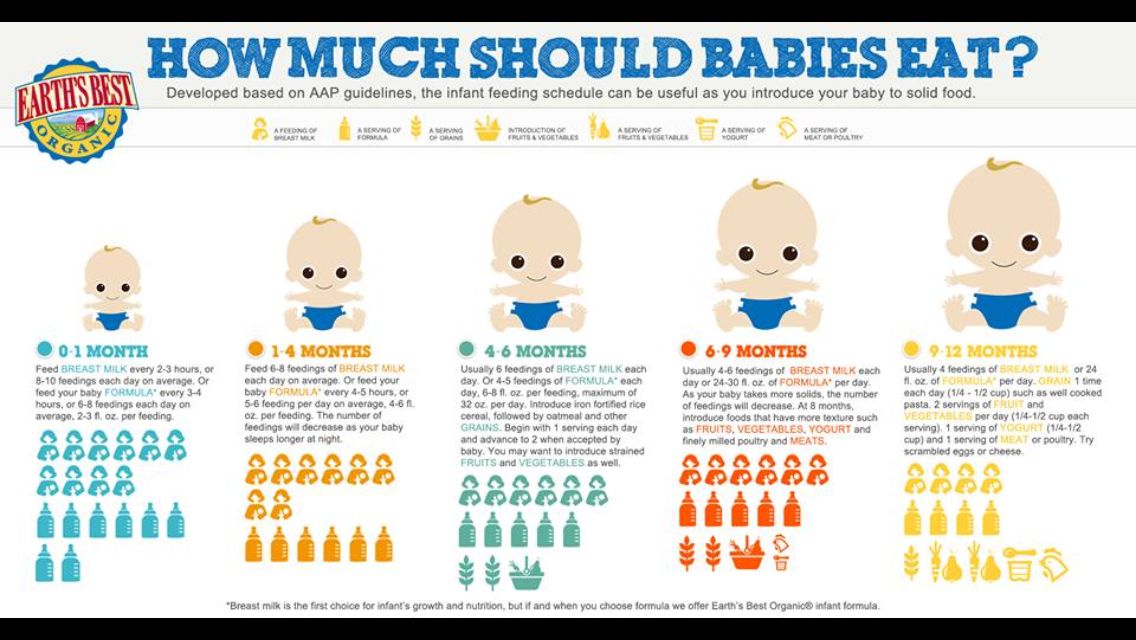 If we see a pronounced pallor or cyanosis, most likely, a critical situation is already taking place, it is urgent to call an ambulance.
If we see a pronounced pallor or cyanosis, most likely, a critical situation is already taking place, it is urgent to call an ambulance.
There is also such a thing as "groaning breath" - when the child, on exhalation, seems to moan or howl or breathe with a whistle. In this case, there may be retraction of the intercostal spaces, jugular notch, hypochondrium or xiphoid process. Or flaring of the wings of the nose. This situation indicates respiratory failure, and in this case, you need to urgently call an ambulance.
In general, if parents have internal anxiety in the absence of obvious reasons for anxiety, this is a reason to consult a doctor. Most often, some little things that disturb adults can prompt an experienced doctor to seriously think about conducting some examinations in order to identify diseases.
And if a newborn baby not only groans, but makes some unusual sounds, should he run to the doctor?
Parents are often frightened by such sounds. For example, when a child loudly draws in air. In fact, this is not always a reason to see a doctor. When the baby accidentally makes some new sound that he remembers, he begins to repeat it. This is a training of the articulatory apparatus, sound production, and there is nothing wrong with that.
For example, when a child loudly draws in air. In fact, this is not always a reason to see a doctor. When the baby accidentally makes some new sound that he remembers, he begins to repeat it. This is a training of the articulatory apparatus, sound production, and there is nothing wrong with that.
Sources
- Neonatal reflexes and examination of newborns by a pediatric neurologist. V. M. Studenikin // Medical scientific and practical portal "Attending Doctor". URL: https://www.lvrach.ru/2020/01/15437473
- Constant grunting breathing after birth. G. M. Rocha et al. // National Center for Biotechnology Information. 2018. URL: https://pubmed.ncbi.nlm.nih.gov/27607482/
- Cry and restlessness of the child in the first months of life. Intestinal colic in infants - approaches to therapy. E.S. Keshishyan // Pediatric practice. 2014. URL: https://medi.ru/info/8589/
- Constipation in children of the first year of life in the structure of functional disorders of the gastrointestinal tract.
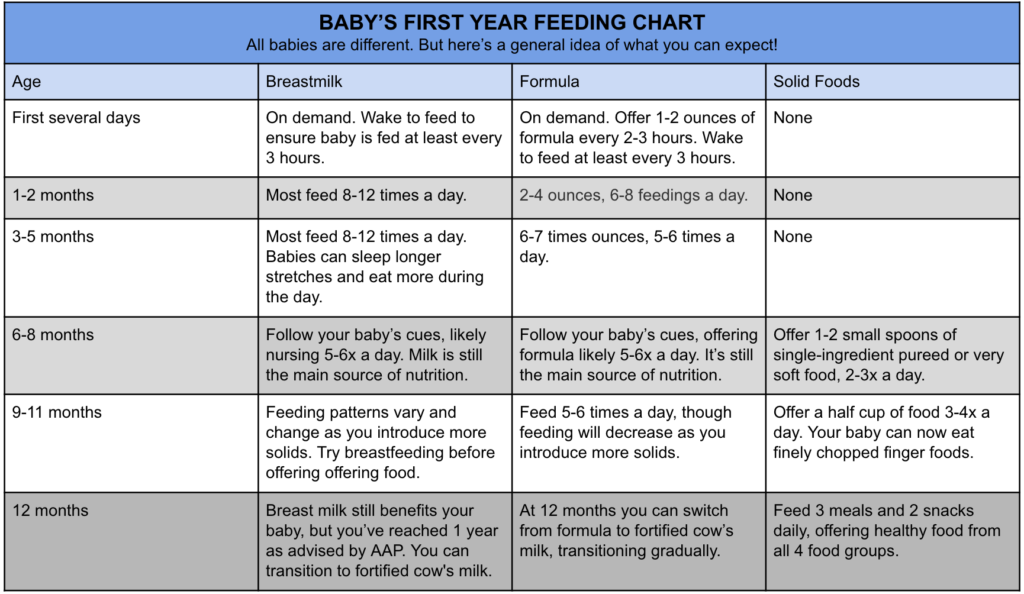 Basic approaches to treatment. A. I. Khavkin, O. N. Komarova // Russian Medical Journal. URL: https://www.rmj.ru/articles/obshchie-stati/Zapory_u_detey_pervogo_goda_ghizni_v_strukture_funkcionalynyh_narusheniy_GhKT_Osnovnye_podhody_k_lecheniyu/
Basic approaches to treatment. A. I. Khavkin, O. N. Komarova // Russian Medical Journal. URL: https://www.rmj.ru/articles/obshchie-stati/Zapory_u_detey_pervogo_goda_ghizni_v_strukture_funkcionalynyh_narusheniy_GhKT_Osnovnye_podhody_k_lecheniyu/
The baby is constantly pushing and groaning. Why does a newborn groan and push in a dream, during feeding?
With the birth of a long-awaited baby, parents feel not only indescribable joy, but also a huge responsibility for a small "ball of happiness". Every respectable family tries to create the most comfortable living conditions for their child and does everything possible so that nothing threatens his health. But without difficulties, as you know, it is not possible to raise a child.
Crying, colic and abdominal pain are the most common concerns. Many are worried that the baby is constantly pushing and groaning, even while in a dream. To identify the root cause, you need at least a little understanding of what this may be due to.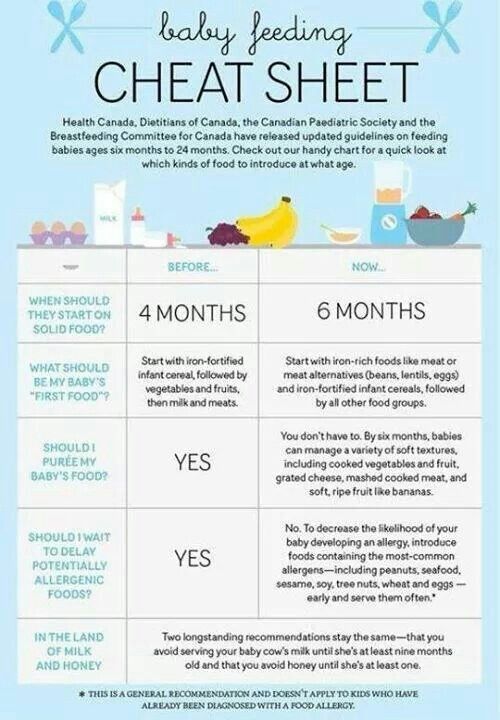 Our task is to deal with this problem and find out why this is happening.
Our task is to deal with this problem and find out why this is happening.
All babies begin to make incomprehensible sounds during defecation and become very tense. There is nothing terrible and frightening in this if there are no other signs of discomfort (fever, crying, screaming, convulsions, bloody mucus). If such behavior is observed constantly - both day and night, accompanied by grunting and straining, then most likely something is bothering the child. In this way, the baby expresses emotions and sensations. The most common reasons include:
- The appearance of dried crusts in the nasal passage, which prevent the penetration of oxygen - the baby tries to inhale and cannot, all this is accompanied by various sounds and strong tension. Mom should clean her nose regularly with a nasal aspirator.
- Pediatricians believe that the baby constantly pushes and grunts after overeating. This is a normal reaction to discomfort in the intestines (digestion).
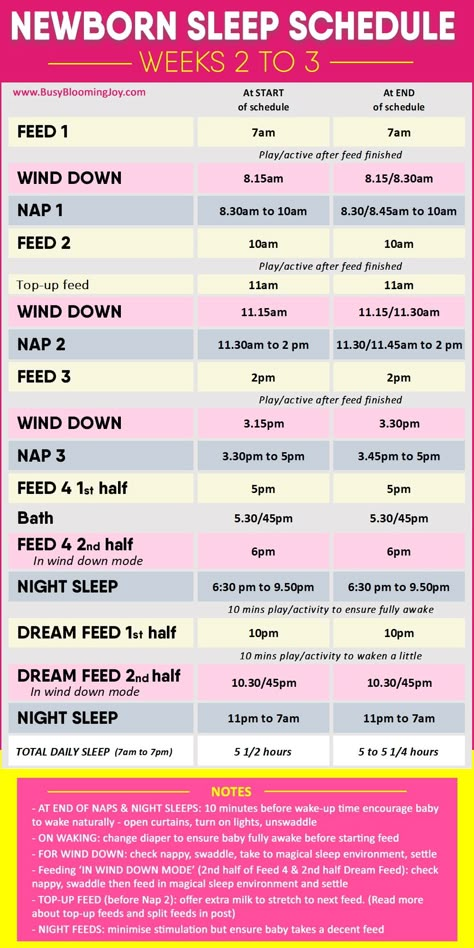 If at the same time the stool does not change, and emptying occurs in a timely manner, then you can do a tummy massage or a “bicycle” exercise, which will help to quickly activate the digestive tract.
If at the same time the stool does not change, and emptying occurs in a timely manner, then you can do a tummy massage or a “bicycle” exercise, which will help to quickly activate the digestive tract.
Intestinal colic
Colic usually appears in the third week of a child's life and can last up to a year. These cramping attacks in the abdomen are combined with the following symptoms: poor appetite, frequent regurgitation, tightening of the legs, altered bowel movements, vomiting, flatulence, weight loss, belching. The child grunts and pushes all night, and also cries from pain.
Every second parent faces this problem, because the baby's intestinal tract is not yet developed. A nursing mother needs to select the menu more carefully so as not to provoke colic. Be sure to exclude products that cause strong gas formation. It is advisable to give your baby drinks that improve digestion.
Swallowing air
An infant constantly pushes, makes grunting sounds and spit up if air enters the intestines along with food. It is recommended to keep the baby in an upright position after each feeding. Then put it on its side so that when burping, the baby does not choke on the milk mixture. Periodically put it on the tummy, it is in this position that gas generation occurs better, and the muscle tissue of the peritoneum is also strengthened.
It is recommended to keep the baby in an upright position after each feeding. Then put it on its side so that when burping, the baby does not choke on the milk mixture. Periodically put it on the tummy, it is in this position that gas generation occurs better, and the muscle tissue of the peritoneum is also strengthened.
Stool retention
The problem of changing the normal bowel habit is becoming common. As a rule, bowel movements are carried out every few days and with great difficulty. The baby is constantly pushing and groaning, while blushing and crying. The root cause is an unsuitable milk formula (for artificial ones), a disturbed diet in the mother (the use of prohibited foods), the frequent use of laxatives, the use of enemas and pathologies of the intestinal tract.
Only a doctor with a full examination can diagnose the problem. Solving it on your own and finding out why the newborn groans and strains in a dream is dangerous for the life of the child. Do not get carried away with enemas, suppositories and laxatives, as they wash out beneficial substances from a growing body.
Do not get carried away with enemas, suppositories and laxatives, as they wash out beneficial substances from a growing body.
How to prevent constipation?
Always pay attention to the behavior and habits of your child. If you notice that the child is constantly pushing, crossing his legs and straining heavily during emptying, then this is the first alarm signal about possible gastrointestinal disorders. To avoid this, strictly control the diet, monitor the amount of fluid you drink, and do not introduce complementary foods before six months.
If the baby is mixed or breastfed, then the mother should keep track of her menu. It is better to choose an adapted mixture on the advice of a doctor and try not to change it. Physical activity and massage also help relieve constipation. Neurologists and pediatricians advise the child to do gymnastics daily: bending the legs, "biking", stroking the tummy (clockwise). The correct technique will be taught by a specialist.
Many doctors recommend giving your baby products containing lactulose.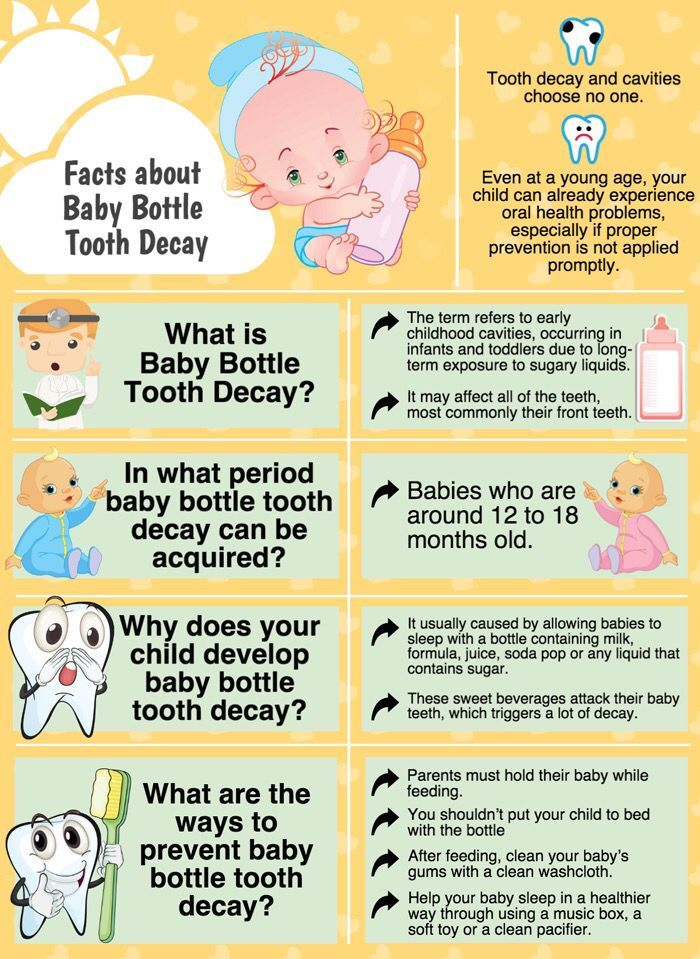 The drug normalizes the microflora and has a mild laxative effect. In the first months of life, a baby can be treated with carminative medicines, but only as directed by a specialist.
The drug normalizes the microflora and has a mild laxative effect. In the first months of life, a baby can be treated with carminative medicines, but only as directed by a specialist.
The baby sleeps most of the time and this is considered normal. At the same time, sleep should be calm and not intermittent. It is considered quite natural when a child sobs, grunts and sniffs. The bad signs are tension, constant crying and tucking up of the legs.
This indicates the presence of intestinal problems. The cause can also be infectious and nervous diseases. It is possible that he was simply overfed, or vice versa - he wants to eat. Keep your room at a comfortable temperature for a restful and restful sleep.
Ventilate the room regularly, it may be stuffy for the baby. Lack or lack of fresh air, physical activity and emotional warmth negatively affect the child's condition. Try to observe the regime of rest and feeding, especially up to a year. Do not forget to follow hygiene: after each emptying, wash, change diapers and lubricate the folds with cream.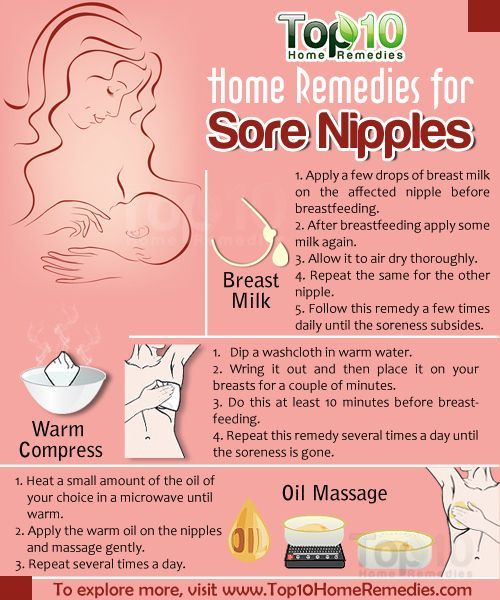
Often, sniffling and grunting is caused by tingling of the hair on different parts of the body. This irritates the delicate skin of the baby, provokes discomfort and anxiety. Wash the baby with a decoction of string, chamomile or potassium permanganate before going to bed, wear clothes made of natural fabric. Traditional medicine recommends lubricating irritated areas with honey. This advice is not for everyone. Better check with your pediatrician.
When to contact a paediatrician?
If the baby groans and pushes around the clock for a long time, then do not hesitate to contact the local pediatrician. Try to remember how long all the baby's sound exclamations last, how much he tenses up and when this is most often observed. Also pay attention to accompanying signs or their absence. All this information is extremely important during the examination.
It is possible that the body of a newborn is adapting to new living conditions. Usually grunting stops when the digestive work is adjusted.

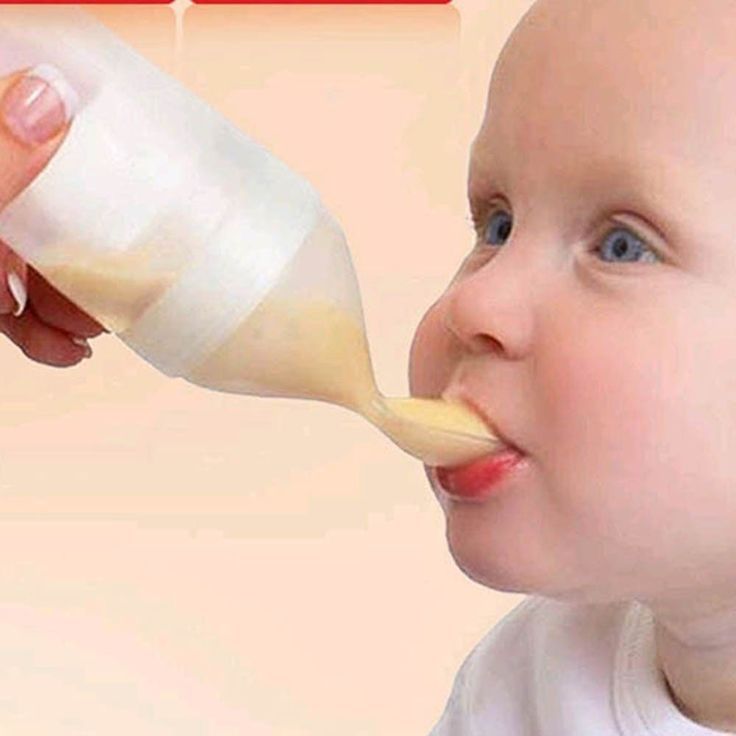 Trapped Intestinal Gas Due to Immature Digestion
Trapped Intestinal Gas Due to Immature Digestion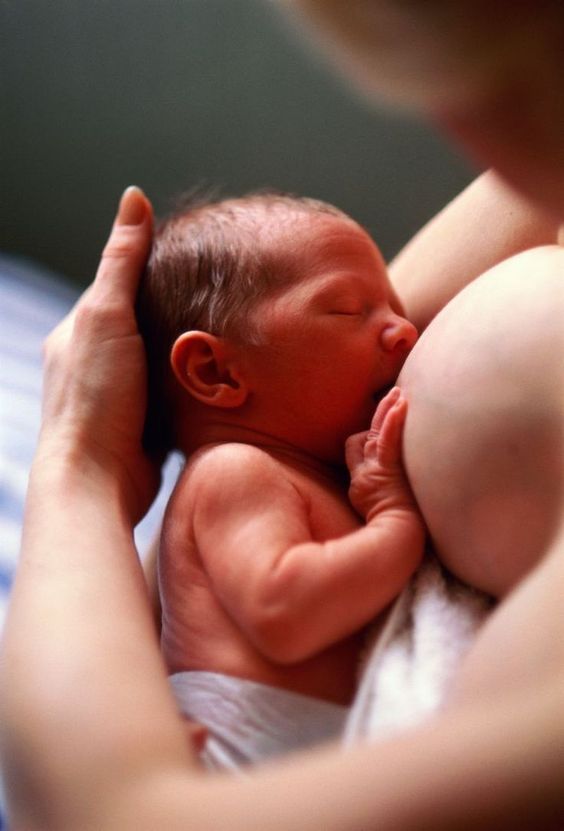 See our section on infant gas relief for more information.
See our section on infant gas relief for more information.
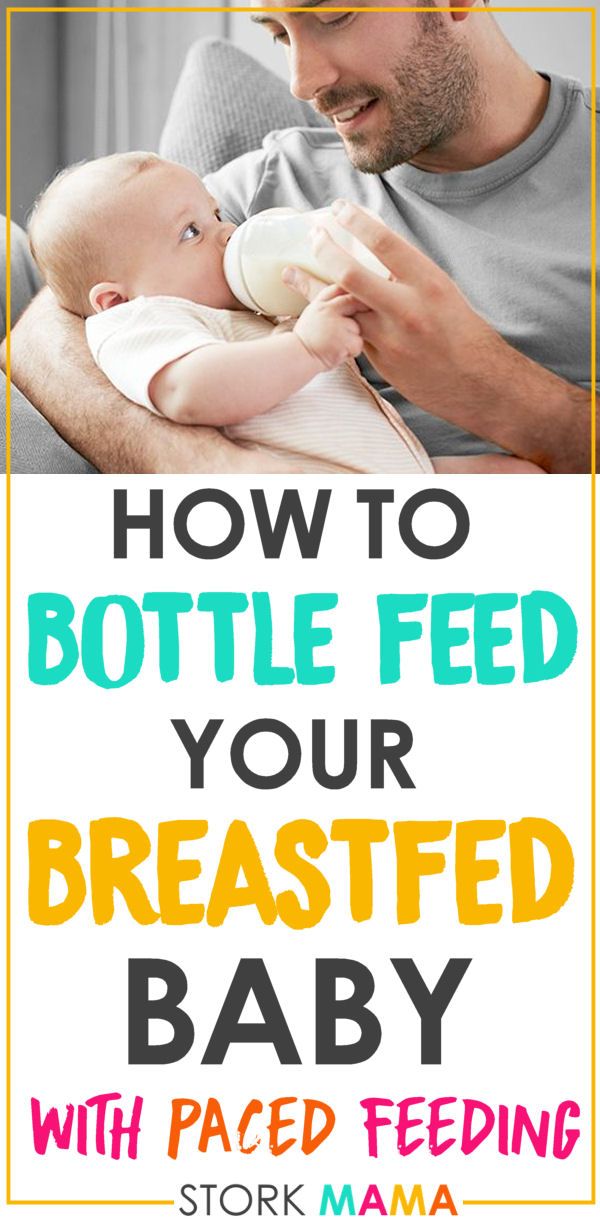
 The lactose intolerant baby is unable to produce sufficient quantities of the enzyme lactase required to break down and digest this sugar properly. Instead, bacteria in the gut feast on undigested lactose causing excess quantities of gas, bloating and even diarrhea.
The lactose intolerant baby is unable to produce sufficient quantities of the enzyme lactase required to break down and digest this sugar properly. Instead, bacteria in the gut feast on undigested lactose causing excess quantities of gas, bloating and even diarrhea.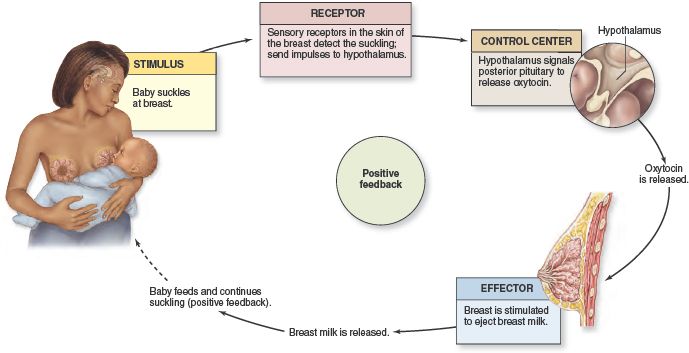
 In addition, Dr. Karp suggests that the absence of rich sensations available in the womb may be causing baby distress.
In addition, Dr. Karp suggests that the absence of rich sensations available in the womb may be causing baby distress. Other variants of this theory are that babies biorhythms have not yet established in early infancy, baby’s enteric nervous system is learning to function, or that baby is experiencing anxiety due to maternal separation.
Other variants of this theory are that babies biorhythms have not yet established in early infancy, baby’s enteric nervous system is learning to function, or that baby is experiencing anxiety due to maternal separation.
 Since babies are born with a clear and pristine gut, it takes them several months to accumulate adequate levels of these flora to aid in their digestion of milk and formula.
Since babies are born with a clear and pristine gut, it takes them several months to accumulate adequate levels of these flora to aid in their digestion of milk and formula.
